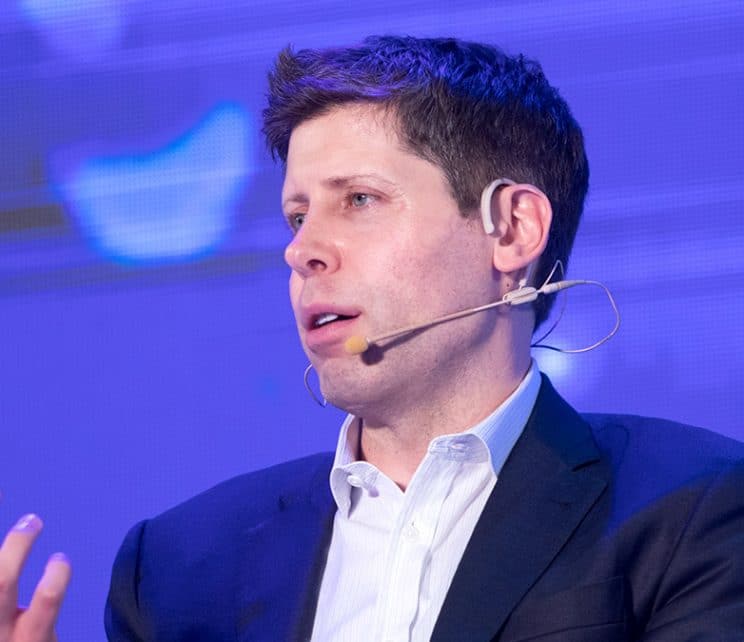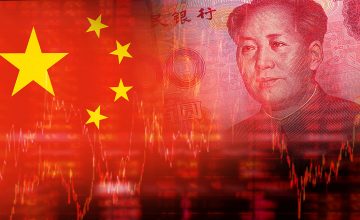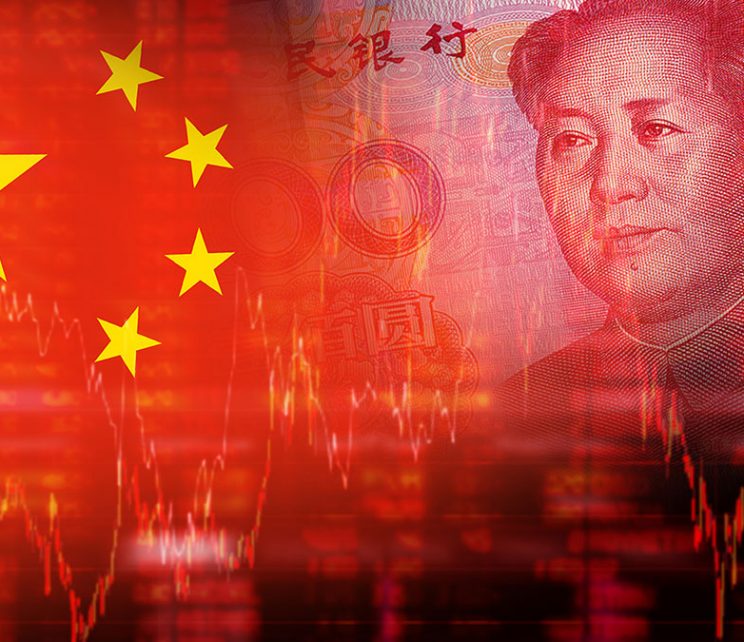
Mainstream Online Web Portal
LoginInvestors can view their accounts online via a secure web portal. After registering, you can access your account balances, periodical statements, tax statements, transaction histories and distribution statements / details.
Advisers will also have access to view their clients’ accounts online via the secure web portal.
The Point
Quick, actionable insights for investors
Global Equities

Investor confidence is growing in Europe
Europe is looking attractive again compared to global peers, says J O Hambro PM Paul Wild.
After a challenging year, investment flows into European equity funds are positive again after a milder-than-expected winter and successful efforts to rebuild gas storage, says Paul.
European gas prices have fallen back below where they were before the Ukraine conflict, and plentiful supply means they are likely to stay that way for the next year or so, he says.
“In the second half of this year, many European consumers will be facing lower energy bills again.”
The EU economy is proving surprisingly resilient. Eurozone GDP numbers for Q4 were up 0.1 per cent, allaying fears of a recession.
Wild says the extent of the outflows through last year has left most investors very underweight European equities.
“Since 2016, European equity funds have lost about a third of their assets. So, it doesn’t need a sea change of flows to be significant.”

Global equities: Is Euro pessimism overdone?
Quick view
Global equities: Is Euro pessimism overdone?
Despite the headlines, investor pessimism about a continental recession seems overdone and European shares are starting to look good value, argues Pendal’s Paul Wild.
The eurozone is likely to skirt recession over the winter, says Paul.
“Fiscal policy in Europe, particularly in Germany, is having a significant turn. Germany has come out with three aid packages since the Ukraine invasion which in total equate to about 2.7 per cent of GDP.
“Unemployment in Europe is still at all-time low levels and we’re seeing reasonable consumer resilience.”
And the EU has been aggressively building gas reserves to head off shortages over winter.
“It feels like European governments have taken away the armageddon scenario,” says Paul.
The environment is ripe for a shift in investor approach back to GARP — buying “growth at a reasonable price” — which suits Europe’s weighting towards industries like pharmaceuticals, automotive, insurance and banks, he says.

Global equities: Should investors be worried about Germany?
Quick view
Global equities: Should investors be worried about Germany?
For a country dubbed the economic engine of Europe, Germany is in the news for all the wrong reasons — hit by rising energy prices, threats to gas pipelines, slowing production and a trade deficit after decades of surplus.
But the underlying economic picture for Europe’s biggest economy still looks robust, says Pendal European equities manager Paul Wild.
Look beyond disruptions caused by Russia’s invasion of Ukraine and instead focus on longer-term fundamentals, Paul says.
“Put it in context. Germany has a fairly unparalleled track record of growth.
“The US has run a trade deficit for a very long time and done very, very well — so I don’t think a short-term deficit is going to be the death of Germany.”
A strong industrial focus, open economy and expertise in autos, chemicals and machinery means Germany is fundamentally a play on global GDP growth.
“Remember if you buy shares in Siemens, it might be quoted in Germany but it gets most of its revenue and profits from overseas.”

Global equities: how to find good stocks in volatile times
Quick view
Global equities: how to find good stocks in volatile times
It sounds a no-brainer, but the first tip for equity investors right now is “buy good companies”, says Pendal’s Paul Wild.
“It’s an obvious thing to say until you try and work out what a good company is,” says Paul, who heads up European equities at our UK-based asset manager J O Hambro.
“A good company needs a moat around it – a moat that provides it with a defensible market share and pricing power.
“That’s most clearly illustrated in financial metrics by the return a company makes on equity, or on capital employed over a reasonable period of time.
“When you’re investing for the medium term, remember that the medium term is an aggregation of many short terms.
“And in the short term, prices can be distorted from fundamentals, affected by the positioning of funds.
“So, it’s a good idea to drip feed or average into the market, knowing that you’re very unlikely to ever pick the absolute low.”

What Aussie investors can learn from drama in European markets
Quick view
What Aussie investors can learn from drama in European markets
Dramatic changes in European equity markets over the past six weeks — and energy prices over a longer time frame — provide poignant lessons for investors everywhere.
“It shows that investors, no matter where they are, always need to think about pricing power and relative resilience,” says Paul Wild, who runs a European equities fund at Pendal’s UK-based asset manager J O Hambro.
“The opportunity set for investors can change very quickly. In Europe it has shifted hugely since the beginning of the year and investors need to alter their stance,” Paul says.
“People in different parts of the earnings spectrum react differently. Household fuel bills will be more impactful on low-income households.”
Paul expects luxury demand to hold up better than other retail categories. “We’ve seen prices rising for jewellery and watches at the very high end.”
Healthcare is also less affected, demonstrated by the share prices of big drug companies. “Utilities as well because of the expansion of renewable assets, notwithstanding those more exposed to Russian gas exports.”

Investing in Asia: The case for Thailand
Quick view
Investing in Asia: The case for Thailand
Stocks in Thailand have disappointed lately for a variety of reasons.
Known as an export base for autos – especially trucks – Thailand has suffered from the advent of electric vehicles.
Tourism – including medical tourism – was upended by Covid and still hasn’t fully recovered. Meanwhile, political uncertainty hasn’t helped.
“Demographically challenged with a comparatively smaller workforce and an ageing population, Thailand faces severe competition from other ASEAN countries such as Vietnam and Indonesia,” says Pendal’s Asian shares PM Samir Mehta.
Samir doesn’t own Thai stocks right now. But cheap valuations prompted him to fly in recently to meet with Thai companies on his watch list.
Thiland is largely a case of “watch and wait” right now, says Samir.
In a new article, he offers a quick overview of the case for investment in Thailand.

Nvidia’s goldmine needs shovel-makers. Here’s one place to find them
Asia does not have an equivalent to the US ‘Magnificent Seven’ tech stocks group.
But a select group of Taiwanese hardware manufacturers can stake claims as the unsung heroes of an AI-driven shift, argues J O Hambro PM Samir Mehta.
Semiconductor maker TSMC is one well known example. In his latest article Samir outlines another under-the-radar example – Taiwan’s Jentech Precision Industrial.
There is still a great deal of technical development needed in the manufacture of AI chips and servers, Samir says.
Samir describes Jentech Precision Industrial – which he holds in Pendal Asian Share Fund – as “a shovel-maker in Nvidia’s goldmine”.
To reduce the risk of relying on Nvidia’s AI chips, Samir believes other Magnificent Seven stocks could be potential customers for Taiwanese companies like Jentech.
“Many of these Taiwanese firms are the go-to partners of choice with very few alternatives when it comes to leading-edge technologies.”

What we learned from OpenAI’s failed coup: don’t bet against capitalism
Quick view
What we learned from OpenAI’s failed coup: don’t bet against capitalism
The failed coup at artificial intelligence leader OpenAI suggests investors are better off ignoring ideology and instead relying on tested market principles such as profit and self-interest.
That’s a lesson investors can take away from the astonishing episode, says Samir Mehta, who manages Pendal’s Asian equities strategy.
The ouster of CEO Sam Altman was engineered by OpenAI board members who reportedly feared that his plans for unbridled development of AI technology posed a threat to humanity.
Altman was later reinstated with the backing of major shareholder Microsoft – and the dissenting board members were replaced.
“It reminded me of when Xi Jinping came down on Chinese companies like Ant Financial and Alibaba’s founder Jack Ma,” says Mehta.
And yet capitalism continues unabated in China, points out Samir. Fast-growing Chinese fast-fashion retailers Shein and Temu are a case in point.
“Chinese and American ideologies are ostensibly diametrically opposite, but when it boils down to business there is very little difference between the two.”

Global equities: How to navigate investing in a higher-rates world
Quick view
Global equities: How to navigate investing in a higher-rates world
It looks like rates are staying higher for longer.
That means investors need to rapidly rethink what has worked in recent years, argues J O Hambro senior fund manager Samir Mehta, who specialises in Asian equities.
When evaluating stocks in this environment, Samir says investors should:
- Double down on valuation as a critical investing metric
- Understand the ramifications of tighter credit on business finances
- Carefully consider the second and third-order effects of higher rates, and
- Focus on near-term cashflow generation ahead of future earnings projections
Samir is seeing the effect of higher rates show up in company reports.
For example, Korean battery-maker LG Energy Solutions recently said electric vehicle sales would slow next year due to higher rates.
“The mindset of every economic participant has to turn on its head 180 degrees,” argues Samir.

How to assess company management: four tales from Asia
Quick view
How to assess company management: four tales from Asia
For all the focus on macro-economics, the actions of management are a major factor in a company’s success.
There’s a reason why active investment managers spend so much time meeting with company execs.
Understanding a company’s leadership – and how well they are executing an appropriate strategy – is critical to successful long-term investing, says Samir Mehta, a senior Pendal PM who focuses on Asian equities.
When facing similar challenges, company managers often take different approaches – with very different results.
Samir points to Chinese restaurant chain Haidilao and camera lens maker Sunny Opticals. When both faced challenges, Haidilao successfully bunkered down and cut costs, while Sunny persisted in an expensive search for growth.
India’s Asian Paints leveraged an iconic brand, healthy cash flows and strong balance to fend off a potentially irrational new rival, while ASEAN-focused fintech SEA was drawn into a costly fight for market share.

Global equities: The more AI grows, the smaller the market could be
Quick view
Global equities: The more AI grows, the smaller the market could be
Not surprisingly, artificial intelligence was one of the big themes in the latest US quarterly reporting.
In Asia there’s a similar level of market excitement, with Taiwanese chipmaker TSMC up 20 per cent this year for example.
But it’s divorced from reality, reckons Pendal Asian Shares PM Samir Mehta.
At TSMC, AI accounts for just 6 per cent of revenue, with the balance of sales coming from stagnant laptop and phone markets, he says.
And the technology’s very success could curtail demand, he cautions.
Enthusiastic long-term AI industry revenue forecasts are often based on growing uptake of per-user licences.
But if AI succeeds in its promise of making business more productive, companies will reduce staffing.
“The effect of raising productivity is going to mean fewer people will need that software because fewer people are employed,” Samir says.

There’s opportunity in China stocks if you know where to look
Quick view
There’s opportunity in China stocks if you know where to look
China’s uncertain economic outlook presents an opportunity for discerning equities investors, argues Pendal’s Asian Share Fund manager, Samir Mehta.
“The Chinese stock markets were doing quite well until about January-February but have now handed back almost all of their returns this year,” says Samir.
“Over the next few years, maybe even a decade or more, we should expect China’s GDP growth to be significantly lower than in the past.
Still, Samir believes it’s a good time to look for Chinese companies with robust market positions and strong cash flows.
“Companies in sectors with concentrated market share positions, or where they possess pricing power and – better still – where there is a focus on cutting costs and generating cash flows without affecting growth.”
Samir names Tencent Music (the Spotify of China) and gaming giant Netease as standouts among others.
Loading posts...
Loading posts...














